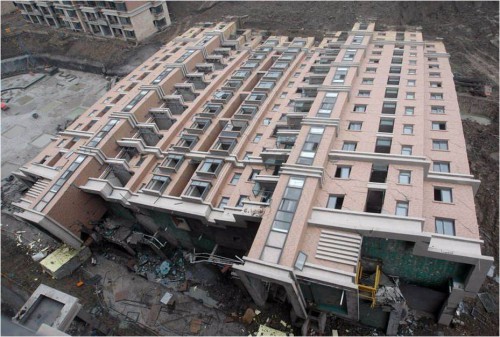… but not always with the intended outcome. This collapsed condo in China, built without significant rebar connecting building to footing, is a nice demonstration of the fact that markets are lousy at providing unobserved goods, like safety and quality.

Markets are great at decentralizing decisions where there’s rapid outcome feedback, but lousy at dealing with delayed or temporally remote feedback: pollution, emergent disease resistance, risky lending. As long as markets are incomplete, the invisible hand can’t solve such problems on its own any more than the thermostat in a room can prevent it from getting too hot due to a building fire. In this case, the profit motive probably led to a cascade of bad decisions that actively contributed to the toppling of the building.
There are three possible solutions: 1. regulate the market (government building inspections), 2. create a market (label buildings for rebar content?), or 3. let a solution emerge (financiers and buyers learn their lesson). 3 is the preferred solution of small-government enthusiasts, but I don’t see any evidence that it actually works for nonlocal problems like pollution or low-probability/high-consequence events. That leaves society holding the bag for the fallout of individual decisions. Possibly that was a good deal for all concerned in the 19th century, but it seems like a dubious approach to the 21st.
